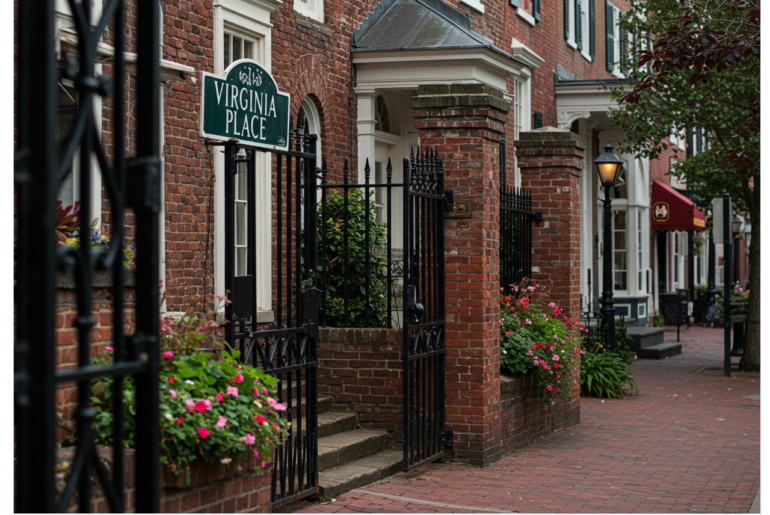This article may contain references to products or services from one or more of our advertisers or partners. We may receive compensation when you click on links to those products or services. Nonetheless, our opinions are our own.
The information presented in this article is accurate to the best of our knowledge at the time of publication. However, information is subject to change, and no guarantees are made about the continued accuracy or completeness of this content after its publication date.
Understanding Virginia’s 2025 Cost of Living and Budgeting Strategies
Virginia’s cost of living in 2025 is rising faster than many would like. While the state offers beautiful landscapes, thriving cities, and a high quality of life, all of that comes with a higher price tag—especially when it comes to housing, healthcare, and getting around. Whether someone has lived here for years or is just starting fresh, understanding these growing expenses is more important than ever.
Living in Virginia today means adjusting to economic realities that affect nearly every aspect of daily life. The cost of buying a home, for instance, has surged past the national average. In 2025, the median home price in the state is around $387,000, according to Zillow. In Northern Virginia especially, home values continue to climb. Renters haven’t been spared either. Monthly rents in cities like Arlington and Richmond have jumped 6–8% in just the past year.
Transportation adds to the burden. People in Virginia often rely on personal vehicles, especially in suburban and rural areas where public transit options are limited. Between gas, insurance, and maintenance, the average household spends over $10,000 a year just to stay on the road, based on the latest data from the Bureau of Labor Statistics.
Healthcare is another growing concern. Even though average household incomes are higher in Virginia than in many states, insurance premiums and medical expenses keep going up. A benchmark health plan now costs about $495 a month in the state, according to KFF. These rising healthcare costs can quickly eat into a family’s budget.
Looking back just a few years makes it clear how much things have changed. In places like Newport News, the cost of living index has risen from 95.6 in 2020 to a projected 105.8 in 2025, based on estimates from the Council for Community and Economic Research. That steady climb affects everything from groceries and gas to childcare and clothing.
In a climate like this, managing money well becomes essential. Creating a personal budget isn’t just about cutting back—it’s about gaining control and planning for the future. The good news? Budgeting doesn’t need to be complicated. With a few steps and the right tools, anyone can build a plan that fits their lifestyle.
Start With the Basics
The first step is simply knowing where the money is going. That means listing out every source of income such as paychecks, freelance gigs, even government benefits. Then, compare that to regular monthly expenses like rent, utilities, groceries, and car payments. In cities like Richmond, rent alone can eat up a large chunk of a single income, so it’s worth looking closely.
Track What You Spend
Apps like Mint and YNAB are great for this. They link to bank accounts and automatically sort purchases, showing trends over time. For those who prefer more hands-on control, Google Sheets offers customizable budget templates that make it easy to build charts and spot spending habits.
Find Areas Where You Can Cut Back
Once spending is tracked, the next step is finding places to cut back. That could mean canceling unused subscriptions, finding more affordable transportation options, or negotiating with service providers for lower rates. A quick call to an internet or insurance company can sometimes result in surprise savings—especially if there’s a competitor offering a better deal.
Don’t Forget Healthcare
Healthcare is another area where small changes can make a difference. Exploring marketplace plans or joining employer wellness programs can help lower out-of-pocket costs. Even just reviewing what’s covered each year can avoid surprise bills.
Voted "Best Overall Budgeting App" by Forbes and WSJ
Monarch Money helps you budget, track spending, set goals, and plan your financial future—all in one app.
Get 50% OFF your first year with code MONARCHVIP
Keep It Flexible and Goal-Oriented
Of course, building a budget is only useful if it keeps up with life. Income changes, big purchases, or family events can all shift the balance. That’s why it helps to revisit the budget monthly or after any major change.
Make It Personal
Budgeting works best when it’s tied to a goal. Whether that’s saving for a down payment, paying off debt, or planning a vacation, having something to work toward gives the process purpose. And starting early in the year—say in February—can create solid momentum for the rest of the year.
Final Thoughts
Managing money in Virginia in 2025 isn’t always easy, but it is doable. Rising costs don’t have to mean falling behind. With awareness, the right tools, and a commitment to checking in regularly, building a solid financial future is within reach.
Frequently Asked Questions
How can I keep track of my expenses?
Try using budgeting apps like Mint or YNAB, or even a simple Google spreadsheet. These tools give a clear picture of where your money’s going and help you spot areas where you might be overspending.
What’s the best way to negotiate with service providers?
Do some research first to see what competitors are offering. Then call your current provider and ask if they can match the price or offer a promotion. Many will do so to keep your business.
What budgeting tools are good for beginners?
Mint is great for automatic tracking, while YNAB is ideal if you want more detailed planning. Google Sheets is a solid choice if you prefer to customize everything from scratch.
How often should I revisit my budget?
Once a month is a good rule of thumb. It’s also smart to check in whenever your income changes or you take on a new major expense.

Reviewed and edited by Albert Fang.
See a typo or want to suggest an edit/revision to the content? Use the contact us form to provide feedback.
At FangWallet, we value editorial integrity and open collaboration in curating quality content for readers to enjoy. Much appreciated for the assist.
Did you like our article and find it insightful? We encourage sharing the article link with family and friends to benefit as well - better yet, sharing on social media. Thank you for the support! 🍉
Article Title: Budget Tips for Rising Living Costs in Virginia this 2025
https://fangwallet.com/2025/08/03/budget-tips-for-rising-living-costs-in-virginia-this-2025/The FangWallet Promise
FangWallet is an editorially independent resource - founded on breaking down challenging financial concepts for anyone to understand since 2014. While we adhere to editorial integrity, note that this post may contain references to products from our partners.
The FangWallet promise is always to have your best interest in mind and be transparent and honest about the financial picture.
Become an Insider

Subscribe to get a free daily budget planner printable to help get your money on track!
Make passive money the right way. No spam.
Editorial Disclaimer: The editorial content on this page is not provided by any of the companies mentioned. The opinions expressed here are the author's alone.
The content of this website is for informational purposes only and does not represent investment advice, or an offer or solicitation to buy or sell any security, investment, or product. Investors are encouraged to do their own due diligence, and, if necessary, consult professional advising before making any investment decisions. Investing involves a high degree of risk, and financial losses may occur including the potential loss of principal.
Source Citation References:
+ Inspo
There are no additional citations or references to note for this article at this time.












































